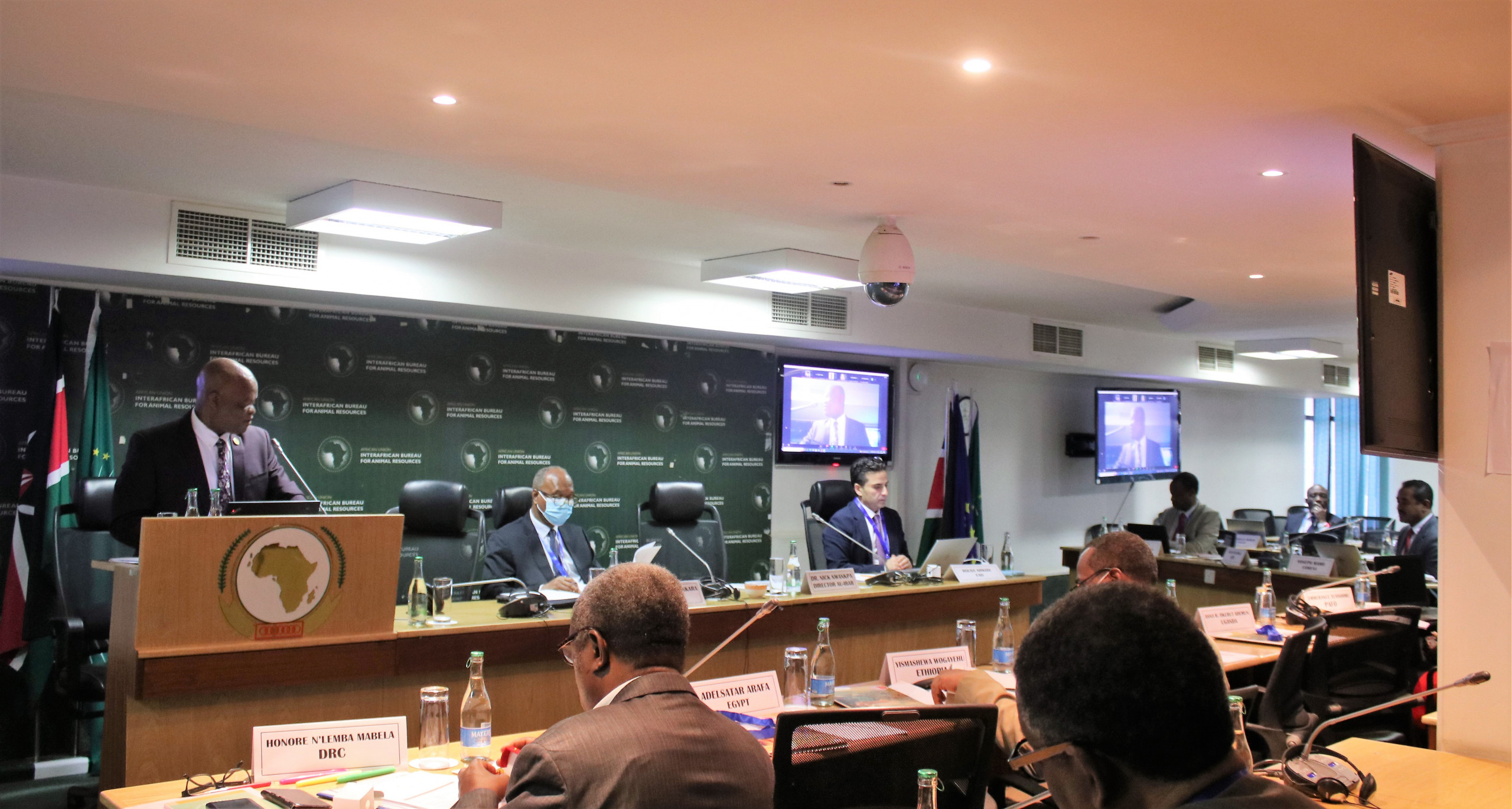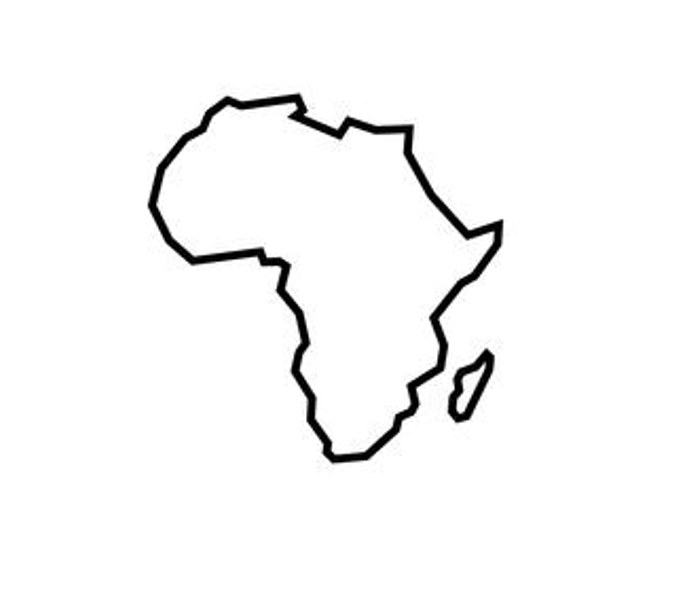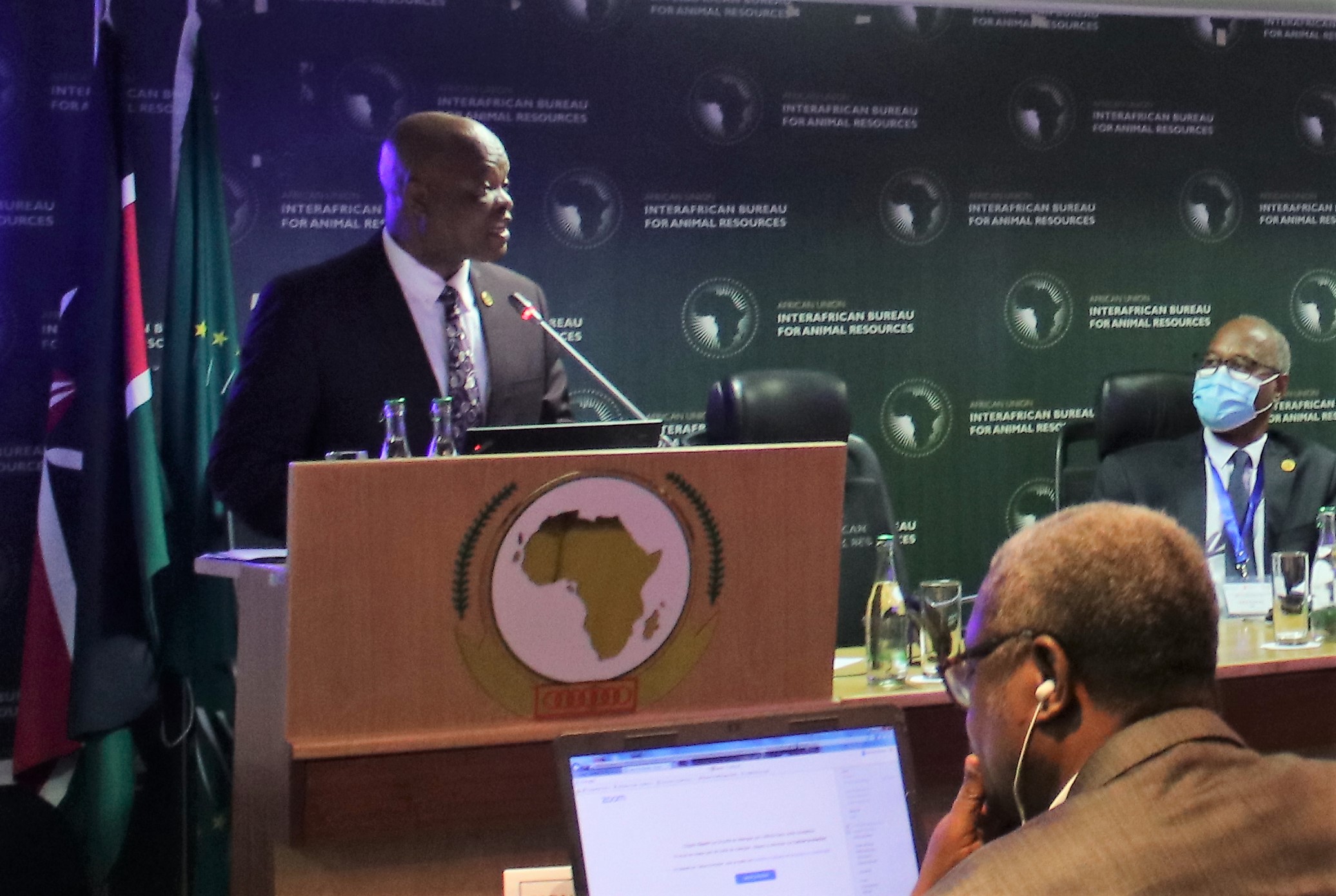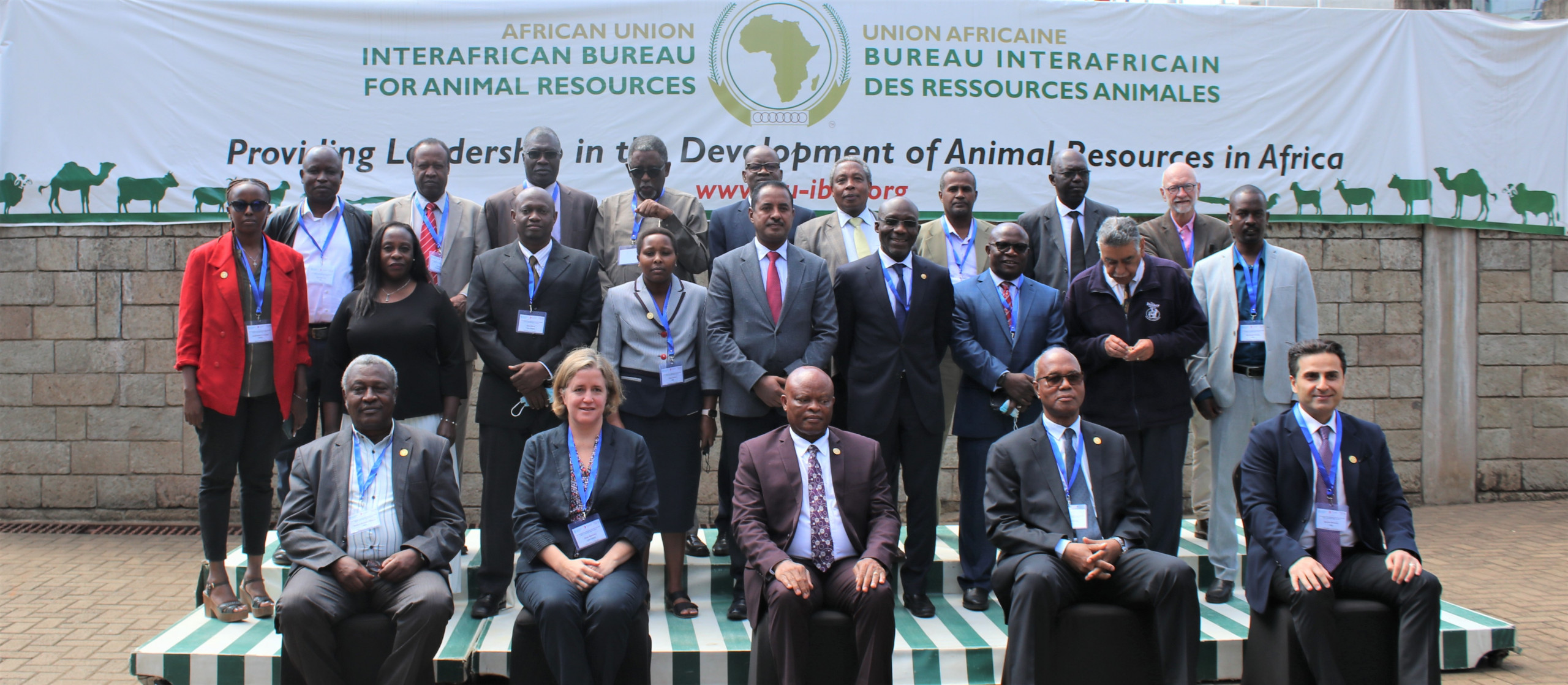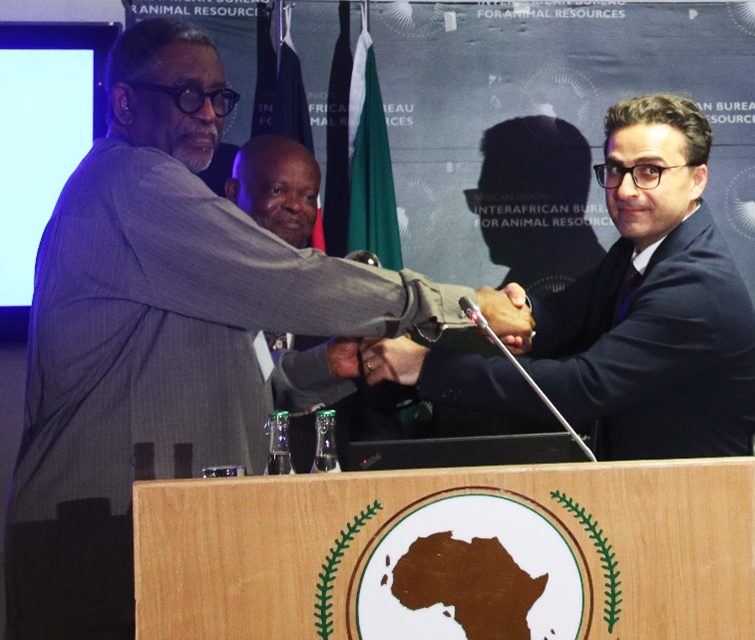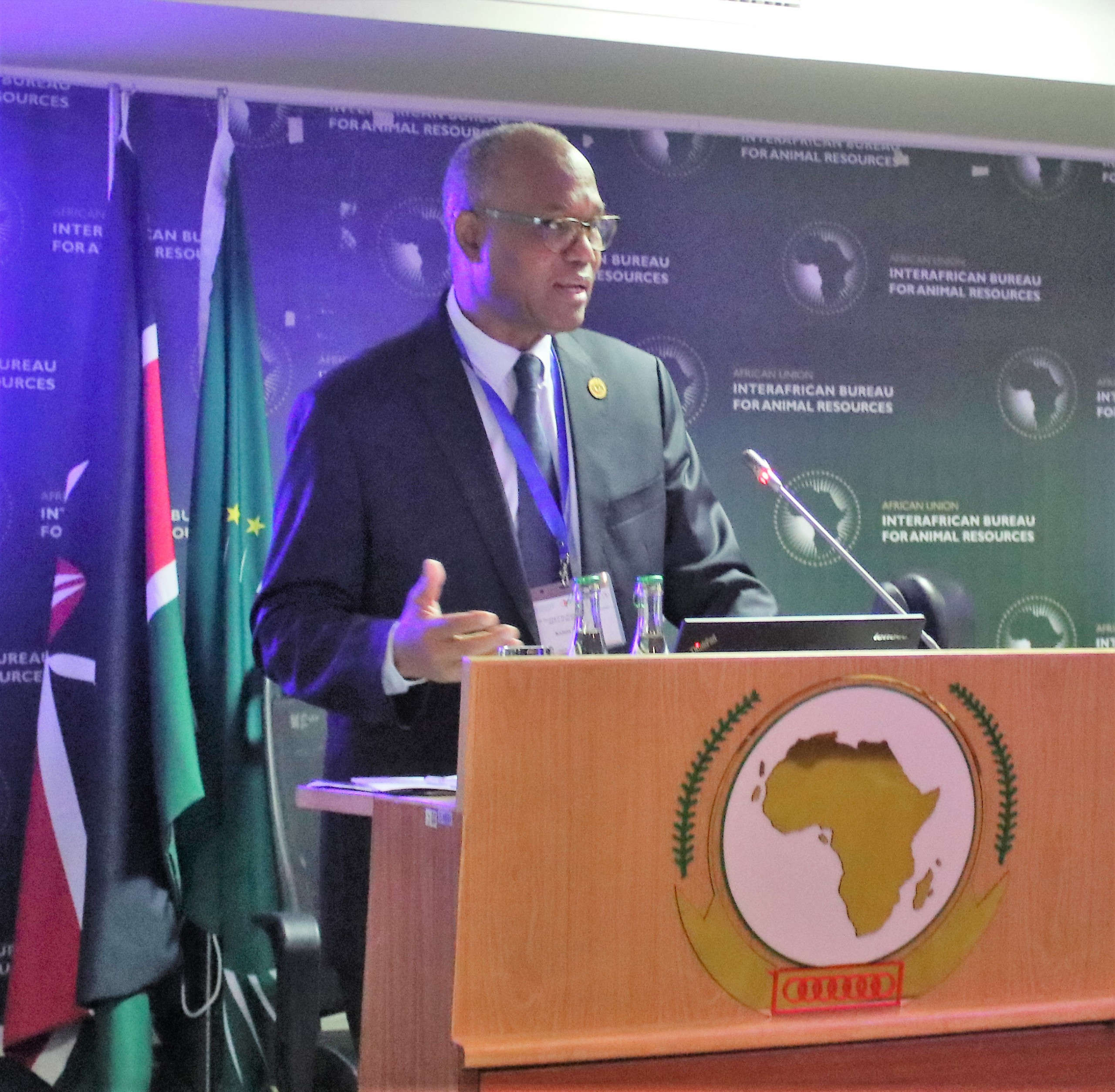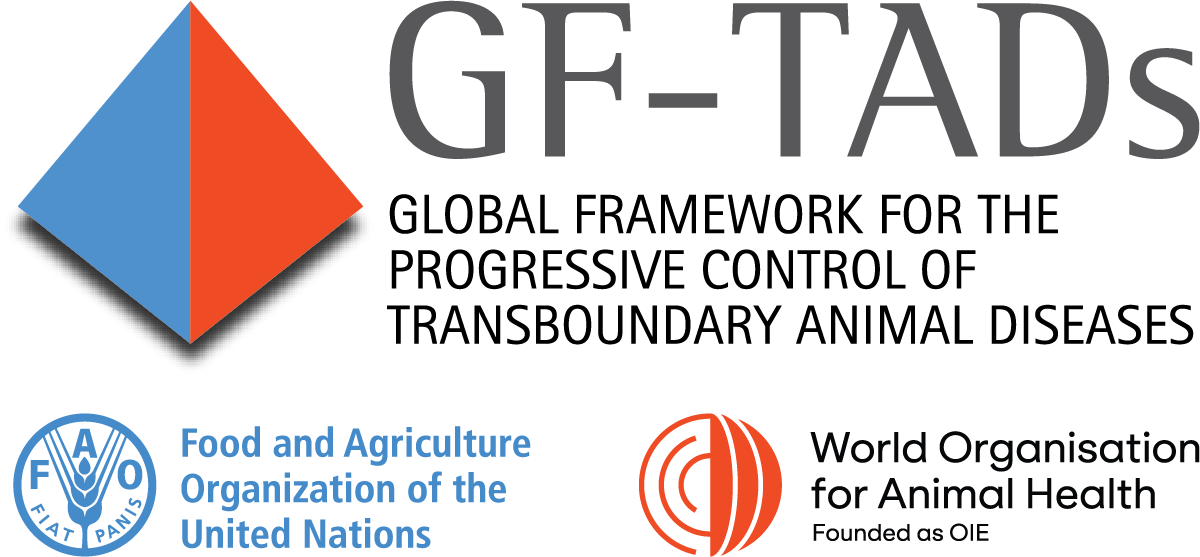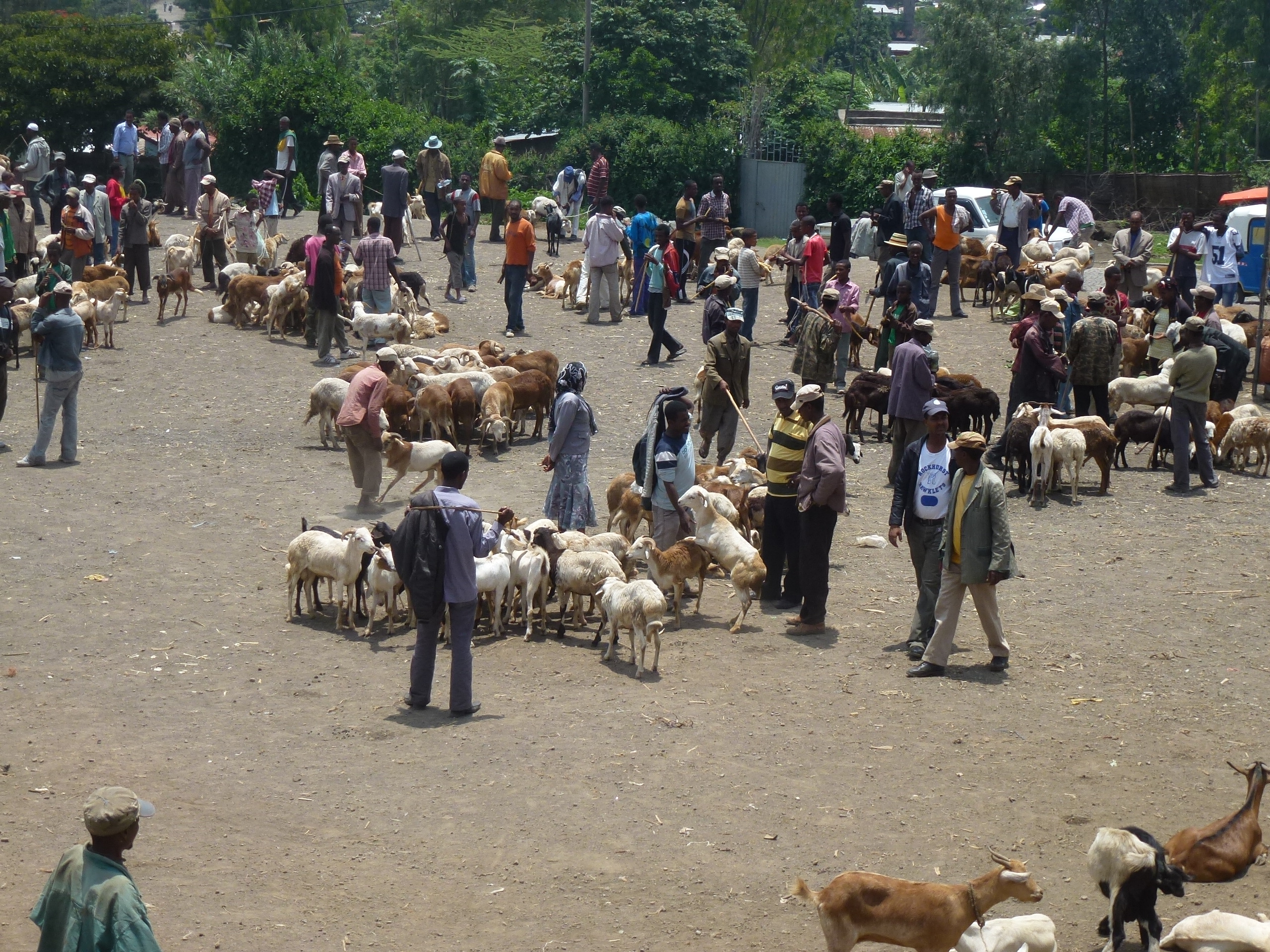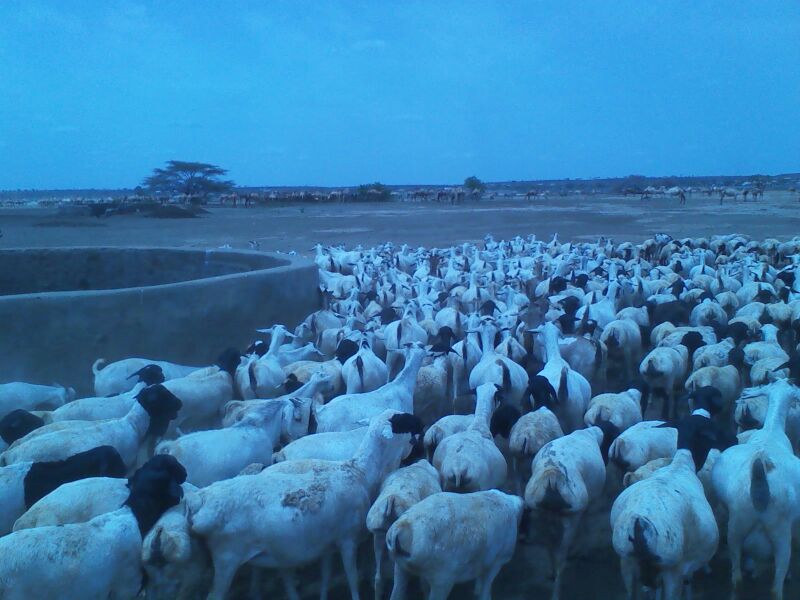
The meeting was attended by up to 11 out of the 18 voting members, along with additional observers and representatives of regional specialised organisations, regional support units, technical and funding partners and the private sector.
The meeting was held in 7 sessions which attracted up to 55 participants, most of them attending in person (58%). More than 34% of registered participants were women.
Session 1. Welcoming remarks
Session 2. Governance aspects
Session 3. Reporting on GF-TADs global disease control and eradication initiatives
Session 3. Reporting on GF-TADs global disease control and eradication initiatives
Session 4. Reporting on GF-TADs for Africa regional priority diseases and topics
Session 4. Reporting on GF-TADs for Africa regional priority diseases and topics
Session 5. Emerging issues, requiring the attention of the GF-TADs RSC
Session 6. Strengthening of VS, role of the Veterinary Education Establishments (VEE), feedback from the private sector / stakeholders
Session 7. Final deliberations, recommendations, next meeting
The OIE Regional Representative for Africa and Regional Secretary of the GF-TADs for Africa, Dr Karim Tounkara, master of ceremony for the opening session, welcomed the regional steering committee members and wished for good deliberations. Three opening remarks were delivered, on behalf of the three lead organisations :
In his opening remarks Dr Nick D. Nwankpa, the Ag. Director of AU-IBAR and President of the Regional Steering Committee emphasised the need to strengthen cooperation and partnerships to leverage the continent’s comparative advantages and resources, given the heavy burden of TADs on the continent, exacerbated by inadequate investments by Member States, RECs and partners.
“Some issues raised are extremely urgent, for instance we only have eight years to achieve the global eradication of peste des petits ruminants (PPR). FAO and partners have developed the necessary tools and strategies for the implementation of the National Action Plans in Member Countries. This however requires investments by both Member Countries and international partners”, said Dr Mohammed Shamsuddin, FAO Regional Office for Africa.
Dr Karim Tounkara, WOAH Regional Representative for Africa and Regional Secretary of the GF-TADs for Africa, also highlighted the priority TADs that have been identified GF-TADs Africa: foot and mouth disease (FMD), PPR, African swine fever (ASF), Rift valley fever (RVF) and contagious bovine pleuropneumonia (CBPP). These diseases are endemic in many parts of Africa, and require strong regional collaboration to achieve their control, if not eradication.
The following Members of the Regional Steering Committee, representing national WOAH Delegates, were present at the meeting :
Also represented was the Vice-President of the Regional Steering Committee, Dr Roland Dlamini, WOAH Delegate Eswatini and WOAH Council Member (attended online).
Other (voting) Members of the Regional Steering Committee, representing regional (economic) communities, regional network and regional stakeholders’ groups, present at the meeting, were :
Along with FAO and WOAH representation from head offices and the region, were also represented (as non-voting Members and observers) :
Dr Nick Nwankpa, acting Director of AU-IBAR, Director of AU-PANVAC and Chairperson of the GF-TADs for Africa. Picture (c) L. Iyadi (woah) 2022.
In terms of governance, the meeting endorsed a few changes to the terms of reference of the RSC, which includes an enlarged membership, including one WOAH Council Member (non-voting) and a representative of the Africa Association of Veterinary Statutory Bodies, as well as the endorsement of the terms of reference of a new expert group which will focus its attention on contagious bovine pleuropneumonia (CBPP).
Participants were also introduced to the newly established Partnerships and Financing Panel (PFP) of the GF-TADs, by Dr Bouda Ahmadi (FAO). The PFP is now also specifically mentioned in the revised terms of reference of the RSC (under “donors”).
The remainder of the 3-day meeting was dedicated to technical presentations and discussions, based on the below presentations, delivered by country representatives, relevant subject-matter experts and senior scientists :
PDF - 435.02KB
PDF - 402.04KB
In front (fltr) : Dr Honoré Nlemba (WOAH Delegate DRC and President of the Regional Commission for Africa), Ms. Nina Henning (GALVmed, FMD – EA AgResults project), Dr Nick Nwankpa (Ag. Director of AU-IBAR), Dr Karim Tounkara (WOAH Regional Representative for Africa) and Dr Bouda Vosough Ahmadi (Ag. Coordinator of the GF-TADs Global Secretariat). Picture © L. Iyadi (woah) 2022.
The African Union, through the Ag. Director of AU-IBAR, Dr Nick Nwankpa recognised the efforts of Dr Karim Tounkara, WOAH Regional Representative for Africa and Dr Junaidu Maina, Chair of the FAO/WOAH Joint Advisory Committee (JAC) for their distinguished efforts that contributed towards the eradication of rinderpest on the continent. Both were honoured with a certificate of recognition and golden plaque to commemorate the great institutional and individual contributions they made. The continent celebrated 10 years since the disease was officially eradicated (in 2011).
Picture : African Union awarding of individual recognitions of their contributions to the eradication of rinderpest from the African continent to Dr Junaidu Maina (left, former CVO and OIE Delegate of Nigeria, and Chair of the Joint Advisory Committee of the post-eradication rinderpest programme). Handing over the award is Dr Bouda V. Ahmadi, ag. Secretary of the GF-TADs Global Secretariat (for FAO). Picture © L. Iyadi (woah) 2022.
Picture : African Union awarding of individual recognitions of their contributions to the eradication of rinderpest from the African continent to Dr Karim Tounkara (current WOAH Regional Representative for Africa, past Director of the AU-PANVAC and past IAEA Coordinator of the rinderpest laboratory diagnostics programme under PARC and PACE). Picture © L. Iyadi (woah) 2022.
Recommendations emanating from this meeting are largely beased on a critical review of the recommendations of the last RSC (10) and their level of implementation, along with new recommendations, pertaining to the emerging issues discussed (HPAI and AHS). A particular effort was made to have less recommendations, but better recommendations, in terms of indicators (SMART : specific, measurable, achievable, relevant and time-bound) allowing for improved monitoring by the next RSC (12) meeting. Members have until the 14 July 2022 to approve the recommendations after which they will be published on the GF-TADS for Africa page, as part of the minutes of the meeting. The RSC-11 also proposed that the next meeting could be organised in Morocco (in the first half of 2023), as face-to-face meeting.
This activity was labeled GF-TADs (Africa)
